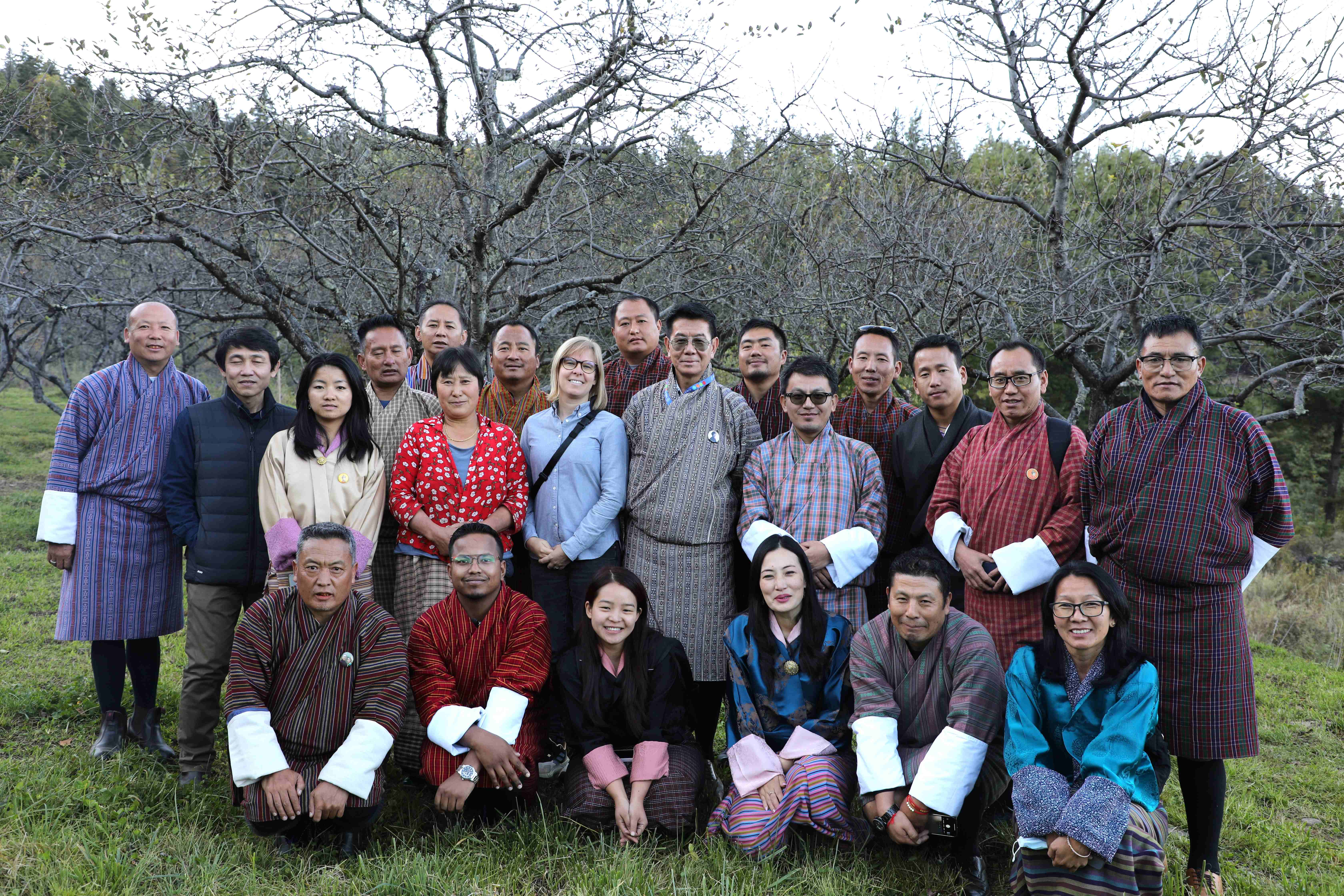Bhutan advances climate action in livestock sector through stakeholder workshop
The Kingdom of Bhutan took a significant step forward in addressing climate change within its livestock sector

©FAO/ Bhawana Pradhan
The Kingdom of Bhutan organized a workshop to strengthen national commitment to carbon neutrality and enhance climate resilience in the livestock sector under the FAO Flexible Voluntary Contributions (FVC) subprogramme on “Scaling-up livestock climate actions to enhance nationally determined contributions (NDCs) – Phase II.”
Tashi Yangzome Dorji, Director of the Department of Livestock, opened the workshop emphasizing the critical role of livestock in Bhutan’s climate agenda. “Prioritizing climate action in this sector is crucial for our nation to remain carbon neutral. Agriculture and livestock production are vital to food security and poverty reduction in Bhutan,” she said.
Bhutan's climate commitment dates back to 2009, when the country pledged to remain carbon neutral ‘for all times’. However, its national greenhouse gas (GHG) inventory indicates that the Agriculture, Forestry and Other Land Use (AFOLU) sector accounted for 57.2 percent of the country's GHG emissions in 2015, with livestock being the primary contributor.
The workshop provided a platform for knowledge sharing, group discussions, and field visits to address greenhouse gas emissions and identify key action to strengthen climate resilience. It brought together a diverse group of 40 participants, including government officials, researchers, farmers and producers, international experts, and national media.
Workshop highlights
During the workshop, participants explored innovative climate-smart practices, including the use of biogas to reduce reliance on liquefied petroleum gas, selective livestock breeding, improved feed and pasture management, and integrated farming systems. Discussion highlighted the need for better coordination among sectors such as forestry, finance, and agriculture to tackle cross-cutting issues like land use, livestock health, and rangeland management.
Participants also addressed barriers to scaling climate actions, including resistance to labor-intensive technologies like biogas, insufficient funding, and a lack of localized data. They emphasized the importance of improving Bhutan-specific GHG emission factors, building technical capacity for both field officers and farmers, and enhancing the methodologies used for emissions inventories. Opportunities for accessing multilateral funding, such as through the Green Climate Fund (GCF) and the Global Environment Facility (GEF), were also explored, although the capacity to develop competitive funding proposals remains a priority area for improvement.
Field visits
Field visits offered practical demonstrations of how these solutions could be implemented. A local farmer showcased the benefits of biogas technology in reducing emissions and providing clean cooking energy, while another highlighted integrated dairy farming practices that enhance feed availability and sequester carbon by cultivating pastures under fruit trees. Despite Bhutan’s unique challenges, such as its mountainous terrain, dispersed populations, and limited access to resources and markets, these examples illustrated the potential for scalable solutions.
Way forward
The workshop concluded with a consensus on the way forward. Priorities include developing a national roadmap for livestock climate action, fostering stronger institutional collaboration, improving data collection and monitoring systems, and scaling up the adoption of climate-smart practices. Bhutan's Department of Livestock, in collaboration with FAO under the FVC subprogramme, will continue to spearhead efforts to address these objectives, focusing on capacity building, climate action roadmap, and funding initiatives.
